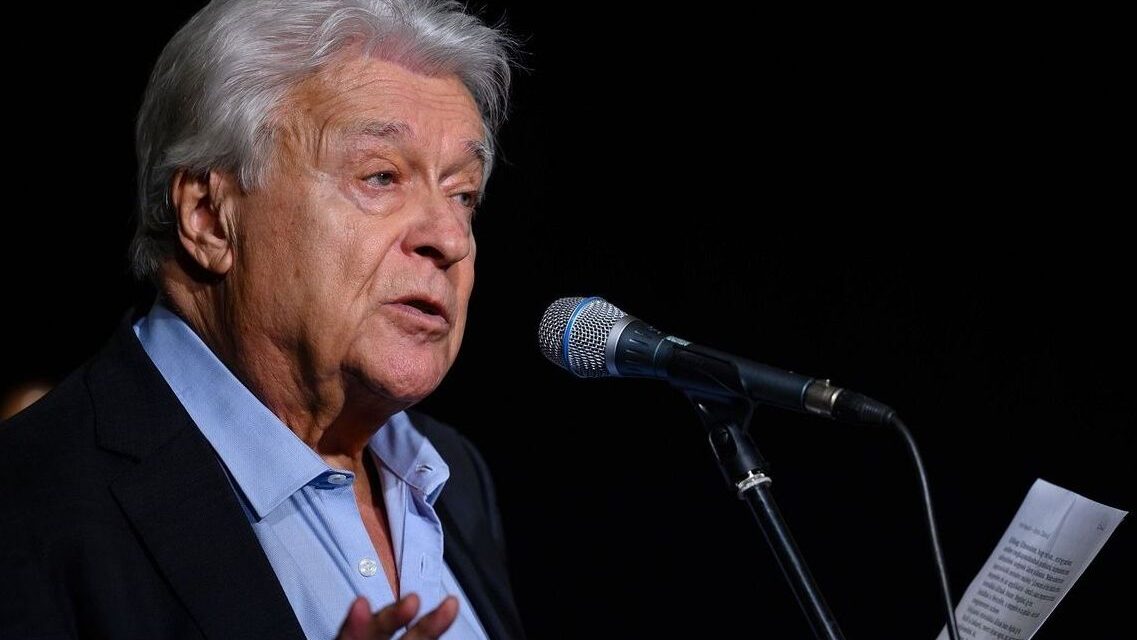Sándor Lukács received this year's Antal Páger actor's award, the recognition of the Makó municipality, on Saturday in the town's Hagymaháza. The local representative body decided to establish the recognition in 2001 - on a civil initiative.
The award was presented by Éva Erzsébet Farkas (Fidesz-KDNP), the mayor of Makó.
The local representative body decided to establish the recognition in 2001 - on a civil initiative. The prize is awarded every year to the actor who, according to the board of trustees' decision, is the most faithful to the intellectual heritage of Antal Páger, born in Makó, and whose acting is characterized by Páger's authenticity and insouciance.
boon.hu writes.
Apart from the period of restrictions imposed due to the pandemic, the recognition is traditionally given on January 29, close to Antal Páger's birthday, at the Onion House in Makó. At the ceremony, in addition to the diploma, the awardee will receive an exact copy of the gold signet ring of Antal Páger, "Uncle Téni", which he received from the Vígszínház when he was eighty years old.
Accepting the award, Sándor Lukács stated that, as an artist who has been on the field for more than fifty years, he feels more and more that acting, as one progresses with age, is more and more a matter of character. With the passing of youth, the spiritual experience that the artist gathers during his career remains.
The actor must live with open eyes, retaining a childlike curiosity until his death. New and new characters can only be portrayed authentically if the actor has an external and internal image of them
- He told.
The actor recalled that, together with Erzsébet Kútvölgyi, Zoltán Várkonyi contracted him to the Vígszínház in the early 1970s. Antal Páger was one of, if not the best, member of the troupe. With his phenomenal manner, his engaging directness, his willingness to help, and his taste, he gave an impulse to everyone, he added.
Sándor Lukács was born in Miskolc on July 21, 1947, and lived in Borsod until he was 16 years old. Then he moved to Budapest and applied to the Theater and Film Academy after graduation. He was hired for his fourth "run", until then he was an assistant actor at the Thália Theater and then a studio assistant at the National Theater.
He received his diploma at the college in 1972, then signed a contract with the Vígszínház, of which he has been a member ever since. His first major role was in Don Juan directed by Dezső Kapás, he also appeared in two big hit plays of the seventies (Imagined report on an American pop festival, I am thirty years old). Over the years, he has provided an authentic performance in classic and modern dramas and comedies - portraying great statesmen or weed seducers. Before the award ceremony, the Mako audience could see him in the play The Two Popes.
He appeared in many films, such as The Birds, 141 minutes from the unfinished sentence, Mephisto, the Kreutzer sonata, The Bridgeman. Its popularity is mainly due to TV movies. He played a wide variety of roles, from the dramatic hero to the operetta bon vivant, and portrayed historical figures such as King Matthias, Napoleon, Rubens, and Sándor Petőfi.
Several audio books, including the work of Sándor Márai, The candles burn to the brim, are played in his performance. We could also hear his beautiful organ in many dubbing roles; he was the Hungarian voice of Alain Delon, even in the world hit Paroles, Paroles.
Poetry is as much a part of Sándor Lukács' life as acting. He wrote his first poem when he was nine years old, and his first book of poems was published in 1985. On his own evenings - traveling around the country - he also recites his own poems.
His work has been recognized with numerous awards, and he was awarded the Kossuth Award in 2016 in recognition of his art, which is highly appreciated by the public, the profession and critics, as well as his masterful performance in theater, film and television roles, which reflects his exceptional creativity and temperament, and his incomparably successful artistic career.
Photo: Sándor Lukács Kossuth and Jászai Mari prize-winning actor, Photo: Tamás Vasvári / MTI












